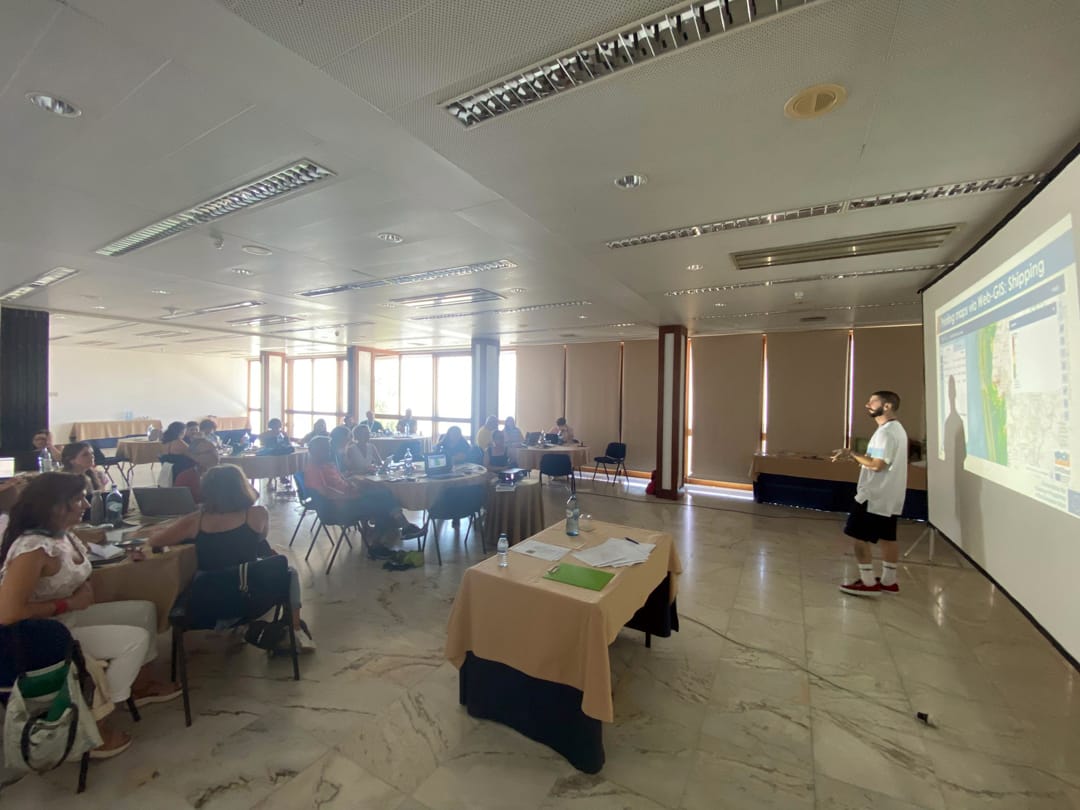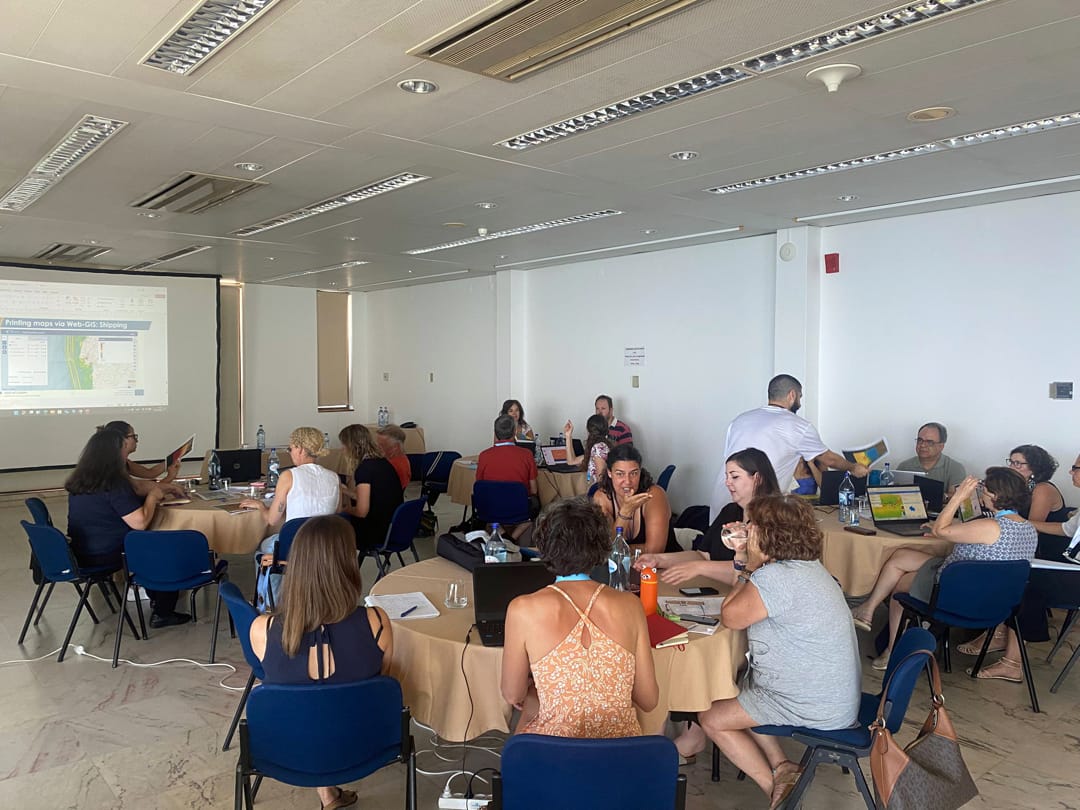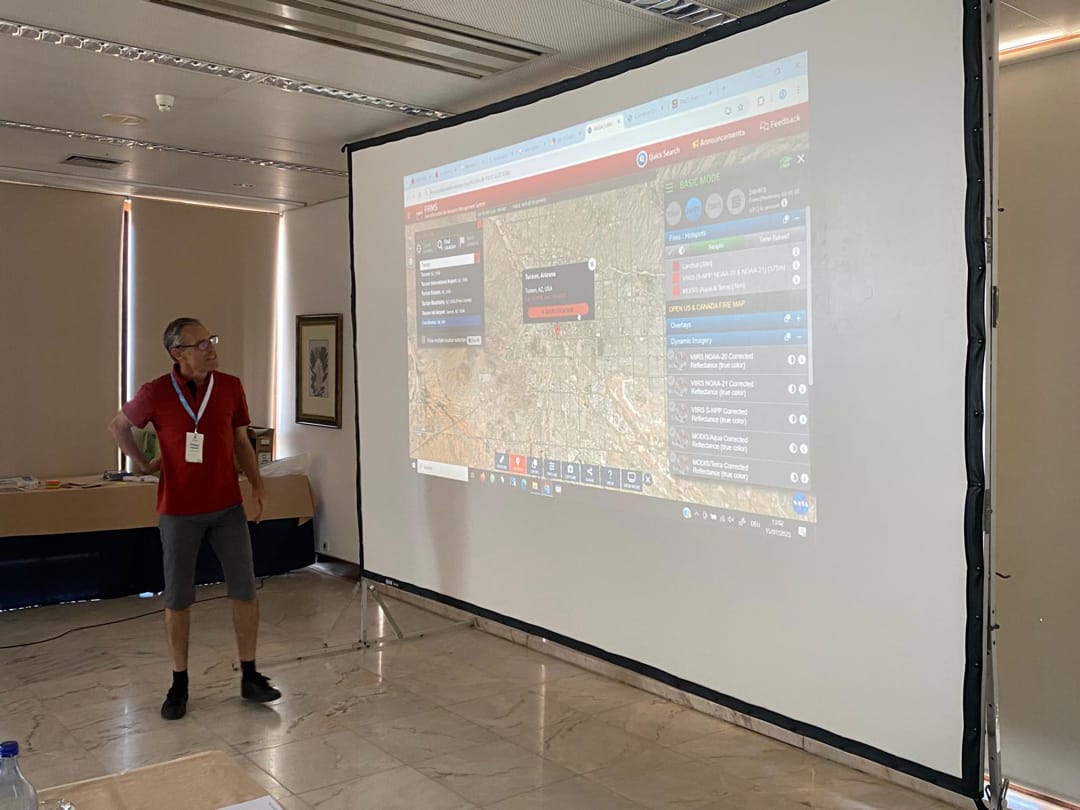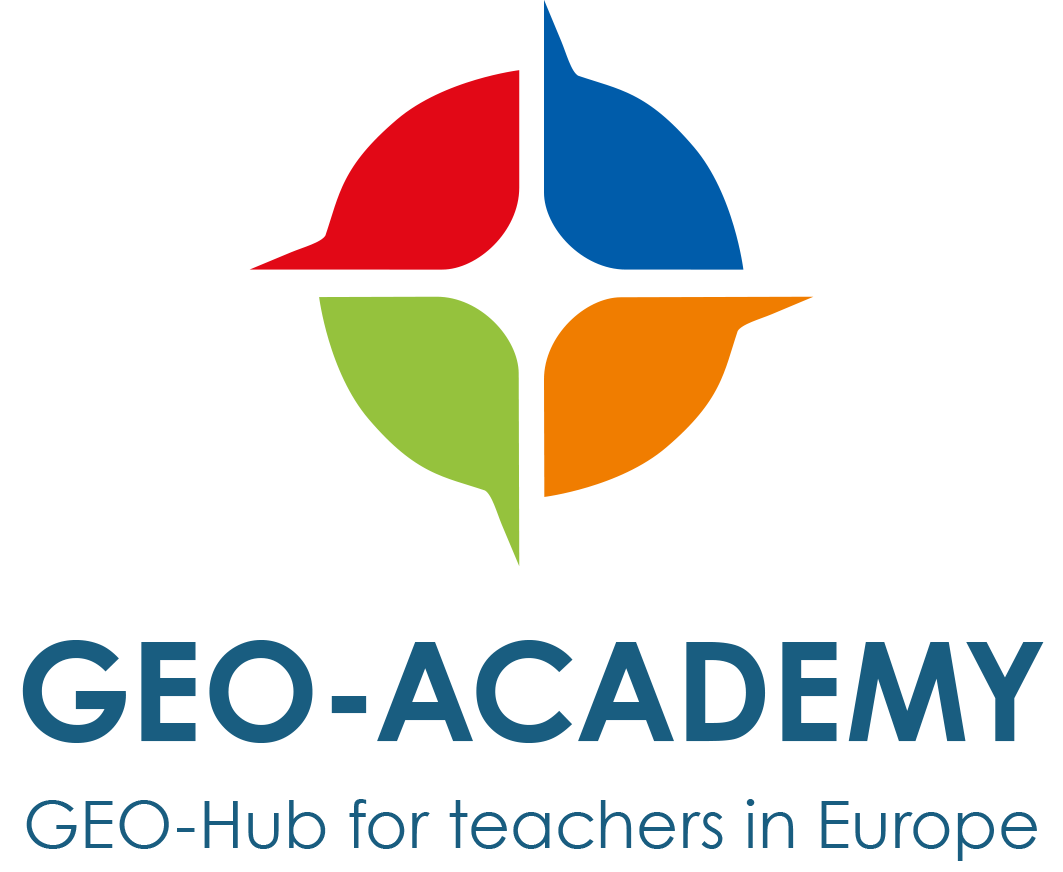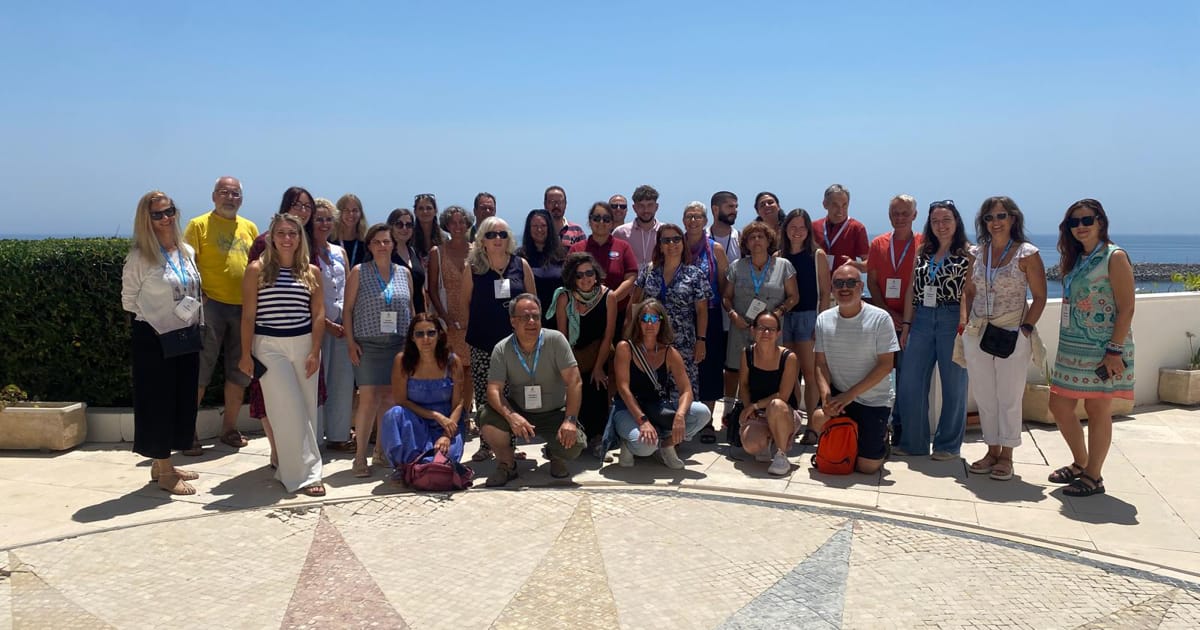
Between 13 and 18 July 2025 in Sesimbra, Portugal, GEO-Academy organised its 3rd International Training event, entitled “Innovative digital GEO-Tools for enhancing teachers’ digital, green and spatial skills towards an effective STEAM Education for Sustainable Development”. The summer school focused on exchanging knowledge and enriching the participating teachers from elementary and high schools from all over Europe with practical skills, tools, and collaborative strategies to effectively integrate geospatial technologies, digital tools, and climate science into their teaching practice.
HIGHLIGHTS OF THE WEEK
- The GEOBSERVE platform was presented to the participants. This platform, developed by GEO-Academy, hosts trainings and materials, as well as resources and guides to support teaching sustainable development in the classroom, available free and accessible everywhere. The GEO-Academy consortium developed a guided tour of GEOBSERVE, available here.
- Among the many different workshops, two will be highlighted here.
- One was about GIS and Spatial Analysis for Challenge-Based Activities. This workshop tackled real-world sustainability challenges, with a specific emphasis on offshore wind farm site-selection. Participants learned to combine multiple spatial datasets – such as wind potential, bathymetry, marine traffic, and protected areas – using tools like QGIS and Web-GIS platforms. Impressively, the teachers’ proposed locations for wind farms aligned with official Portuguese plans. The workshop also included an urban redesign activity, where teachers addressed the Urban Heat Island effect using real data, satellite tools, and Nature-Based Solutions to create actionable proposals for their communities.
- Another one outlined how digital tools like LearningApps, CODAP, and PhET can enhance science education by supporting diagnostic assessment, data analysis, and conceptual understanding through simulations and structured, engaging learning activities. The participants fostered potential collaboration and exchange of ideas on those activities.
- Throughout the week, participants collaborated on the development of original learning scenarios that incorporated the tools and strategies they had explored during the workshops. Those projects, ranging from escape games to urban design simulations, were shared and peer-reviewed on the last day, showcasing the power of collaboration in innovation. Those classroom-ready sequences can be found on the platform GEOBSERVE here. This open sharing of resources underscores the GEO-Academy’s mission: to foster a culture of collaborative, future-ready education rooted in scientific inquiry, digital fluency, and environmental responsibility.
- Stepping out of the classroom, the teachers participated in an excursion to the Luiz Saldanha Marine Park. In this protected natural sanctuary, participants learned about the rich marine biodiversity and unique ecosystems of this protected area. They even spotted a giant tuna leaping from the water!
By the end of the week, teachers left with more than just new knowledge, they left with practical tools, tested resources. They gained confidence in integrating geospatial and digital technologies into their teaching, understood how to embed sustainability into learning, and returned home equipped to inspire the next generation.
Here is what the participants had to say:
“The Summer School was insightful in many regards: the combination of theoretical knowledge as well as hands-on activities was perfect for a teacher training, exchanges with teachers from other countries helped me gain further ideas for teaching activities, it was the perfect setting to start collaborations and exchanges with different schools.” (Viktoria, Austria)
“This Summer School for me, allows me to update my knowledge. […] It’s like a cake, everything is delicious and I see me using tools, for example mapping. [It also allows me to] get to know people from different countries and even from my [own] country that I don’t know and that makes me more able to do partnership with them and then event to take our kids to know different environments” (Monica, Portugal)
“I got to know other people from other countries. I always find very interesting the international environment, to exchange experiences and to learn how schools work in other countries. Of course [I also learnt] about new techniques and new approaches in geography. This Summer School was interesting and exciting!” (Marianna, Austria)
Missed the Summer School? All the classes are available here!
